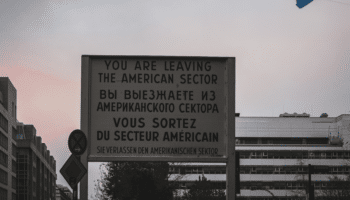It’s been three years since I turned down an attractive job offer at AWS because of the required noncompete agreement. Frankly, I still don’t have any regrets about the decision as Amazon piles on.
Since this article was originally published in August 2019, a lot has happened:
- AWS sued Brian Hall in 2020 under the auspices of his noncompete agreement.
- The Best of Amazon Blind Twitter account posted the current noncompete agreement that Amazon still requires all U.S.-based employees not located in California to sign.
- I’ve been besieged with a number of questions about a variety of Amazon noncompete aspects that I have to assume are being asked in good faith, as well as a pile of additional data points about the noncompete being wielded against employees.
- I’ve had confirmation that internships at Amazon come with a slightly modified form of the non-compete agreement that’s “only” in effect for nine months. Let me repeat that: interns. As in “still in school.”
One thing I got very wrong in my original post is that the 2019 lawsuit against the random sales schmoo was aimed at sending a message to Google, the schmoo’s new employer. Far from it; the message was instead squarely aimed at Amazon’s own employees. “Are you SURE you want to take a job elsewhere, knowing that we might come after you?” is certainly an employee retention tool, but not one I would ever expect a company that fancies itself “Earth’s Best Employer” to wield.
Amazon’s continued enforcement of ‘but-we-never-enforce-these!’ noncompetes
It turns out that these noncompete clauses are very much not just enforced against senior leaders, as AWS folks told me to my face. A number of people I’ve spoken with have had the noncompete used to pressure them into rescinding job acceptances elsewhere. The existence of the Amazon noncompete often means that all it takes is a phone call from someone at Amazon to a company attempting to hire one of its employees, and there’s suddenly a chilling effect that results in an offer being withdrawn.
The reason that we only hear about these clauses affecting senior people is that it costs a fairly large pile of money to fight Amazon to the point that it goes to court. Think “$100K in legal fees” to start. The inherent expense of fighting noncompetes to the point they become public record further enforces the myth that Amazon only rarely enforces the agreement. Sure, it only rarely gets to the lawsuit stage. I have it on good authority that the noncompete is mentioned frequently to disgruntled employees looking to leave. It just takes a certain level of wealth and privilege to fight the issue to the point that it enters the public sphere.
Fighting a lawsuit isn’t just expensive, it also requires a certain amount of security and seniority to survive your former employer dragging you to court. For employees newer to the workforce, it’s easier to capitulate than it is to fight these things. Hence the myth that Amazon only applies this clause against senior leaders. If that were true, why would AWS require (I repeat yet again!) interns to sign it?
This clause has apparently been included in a pile of forms that employees are presented with on their first day of work, though there are reports that this is no longer the case. In other words, the first time many new recruits saw this clause is after they’d already accepted an offer at AWS and shown up for orientation. At that point, not signing is no longer a viable choice for many folks; without job security, “Well, what else am I gonna do?” sets in. The time to consider a noncompete restriction like this is when you get an offer, not after you’ve already started the role.
The ineluctable nature of the Amazon noncompete
While the agreement is scoped to “things Amazon does about which the employee has confidential information,” there’s reportedly an awful lot of confidential info available to most employees via whatever internal wiki system they run over at Amazon. Are you prepared to prove that you never read anything about the upcoming Amazon Systems Manager Barking Manager when Amazon claims your new job at Twitter For Pets violates your noncompete?A number of employees sign under the belief that the clause isn’t enforceable in their jurisdiction. Maybe it is, maybe it isn’t; I’m certainly no attorney. But are you prepared to go all the way to court to prove the point when Amazon gets increasingly irritated with your departure?
AWS isn’t the only major tech player with a noncompete, but it is the most restrictive. Microsoft also has noncompete agreements. Though I dislike the concept as a whole, it’s a lot more palatable to sign one that’s scoped to Microsoft than it is one scoped to “all of Amazon.” Apparently Microsoft and Amazon work out their hiring differences behind closed doors, due to the high level of employee transitions between the two companies. Google does not have noncompete agreements, which is apparently why we see lawsuits filed against former AWS employees who have gone to Google.
Amazon’s acting like your petty ex, and it’s time to grow up
It’s also worth noting that the Amazon noncompete doesn’t just apply if you decide to quit your job and go work somewhere else. It’s every bit as applicable if Amazon decides to fire you. You can get a new job elsewhere, only to discover that though Amazon doesn’t want you anymore, it DEFINITELY doesn’t want anyone else to have you, either.
I’ll repeat what I wrote before: Amazon’s noncompete clause is abusive to the brilliant people who work at AWS.
Do better than this.
Be better than this.





